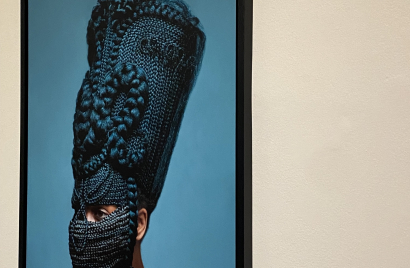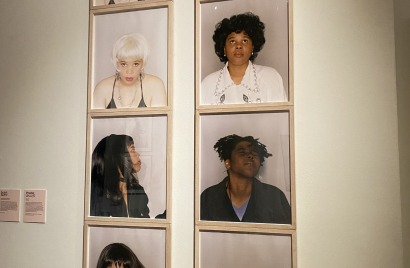
OceanSaver crabs promote plastic-free cleaning products
The campaign by Hearts and Minds, ‘The Ocean will Thank You’ focuses on positivity to encourage sustainable shopping habits

The exhibition at Somerset House saw a collection of works across a multitude of media, exploring the historical representation of Black women in visual culture

The Black Venus exhibition at Somerset House, curated by Aindrea Emelife compiled a collection of works across a multitude of media, exploring the historical representation of Black women in visual culture, and the shifting legacy of Black femininity.
Running between the 20th of July and 24th of September, the exhibition saw Emelife curate work from 18 Black women and non-binary artists. Each piece explored the othering, fetishisation, and reclamation of Black femininity. In total, there were over 40 contemporary pieces of art. The works dated from 1793 right up to the 21st century, and included photographs, historical imagery, collage, and a short film.
Speaking about the exhibition, Aindrea Emelife, explained that “Black Venus defines a legacy. At a time when Black women are finally being allowed to claim agency over the way their own image is seen, it is important to track how we have reached this moment.
She continued, “In looking through these images, which span different stages of history, we are confronted with a mirror of the political and socio-economic understandings of Black women at the time and how the many faces of Black womanhood continue to shift in the public consciousness”.
The exhibition examined three archetypes of Black womanhood; the Hottentot Venus, the Sable Venus, and the Jezebel. Historical displays presented caricatures of Black women, told from colonial-era perspectives. Contemporary works countered these depictions. They interrogated the dehumanisation, sexualisation, and commodification of the Black female body, and invited the viewer to do the same. In place of these archetypes, artists offered complex and authentic images of Black womanhood.
At a time when Black women are finally being allowed to claim agency over the way their own image is seen, it is important to track how we have reached this moment.
Aindrea Emelife, Exhibition Curator for Black Venus at Somerset House
Renee Cox tackled the archetype of The Hottentot Venus. A name attributed to Sarah Baartman, a woman born in 1789 in South Africa, and enslaved by Dutch colonists. She was exhibited as a ‘freak show’ attraction in the West during the early 1800s. In this exhibition, artist Renee Cox explored this archetype by posing as the Hottentot Venus in ‘HOTT-EN-TOT’ (1994). Classically, the figure was portrayed as non-confrontational, conveyed by a side profile. In Cox’s self-portrait, she looks straight at the viewer, thus reclaiming power from these previously passive depictions.
Other work in the exhibition also explored subjects with control, offering an alternative to the dehumanised colonial depictions of the commodified Black body. Artists portrayed Black women with fragility and vulnerability, characteristics which were once restricted to white female bodies. Altogether, works challenged classical, prejudiced perceptions whilst inviting audiences to expand their understanding of Black femininity.
Black Venus first showed in 2022, at Fotografiska, New York. Before coming to Somerset House, the collection resided at the Museum of the African Diaspora in San Francisco. Before being displayed in the UK, 19 new works and 6 UK-based artists were added to the line-up.
Artists shown in the Somerset House exhibition included: Sonia Boyce, Widline Cadet, Shawanda Corbett, Renee Cox, Delphine Diallo, Joanne Petit-Frère, Ayana V Jackson, Zanele Muholi, Amber Pinkerton, Tabita Rezaire, Coreen Simpson, Lorna Simpson, Ming Smith, Maud Sulter, Kara Walker, Maxine Walker, Carrie Mae Weems, Alberta Whittle and Carla Williams.
Curator, Aindrea Emelife, is set to revisit the themes of Black Venus in an upcoming book, to be published by Thames & Hudson. In the Spring of 2024, she will release a collection of essays and reproductions under the title ‘Black Venus: Reclaiming the Gaze’.
Somerset House allowed visitors to see Black Venus for free, with ‘pay what you can’ ticketing. By removing monetary restrictions, the gallery granted open access to a highly important cultural discussion.
The exhibition not only highlighted the restrictive and racist legacy of colonial archetypes, but it also gave Black artists a much-needed space to reclaim and redefine the Black female body, and one that was open to all.


Looks like you need to create a Creativebrief account to perform this action.
Create account Sign inLooks like you need to create a Creativebrief account to perform this action.
Create account Sign in